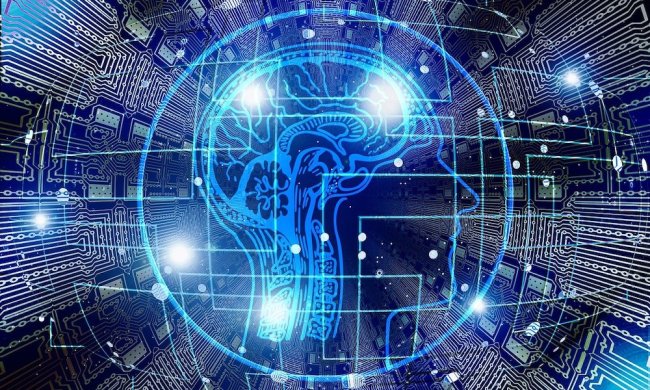Introduction
Welcome to Digital Trends, where we strive to bring you the latest information on all things tech-related. Today, I want to take a deep dive into the world of 5G technology and help you understand everything you need to know about it.
Definition and basics of 5G
So, what exactly is 5G? 5G stands for the fifth generation of wireless technology, which promises lightning-fast download and upload speeds, reduced latency, and the ability to connect more devices simultaneously. Compared to its predecessor, 4G, 5G offers greater speed, capacity, and reliability, making it a game-changer for industries and consumers alike.
Importance and impact of 5G technology
The importance of 5G cannot be overstated. It has the potential to revolutionize not only the way we communicate but also the way we live and work. With its faster speeds, 5G enables seamless streaming of high-quality videos, enhances virtual reality experiences, and supports the development of smart home technology and self-driving cars. In short, 5G will pave the way for a more connected and intelligent world.
Overview of the history and development of 5G
The journey of 5G began several years ago, with continuous advancements in wireless technology. From the initial concept to the development of standardized specifications, 5G has come a long way. Major telecommunications companies around the world have been investing heavily in building the infrastructure required to bring 5G to the masses.
At Digital Trends, we are committed to providing you with comprehensive coverage of 5G technology. Stay tuned as we explore the various aspects of 5G, its applications, and its impact on different industries. Whether you’re a tech enthusiast, a professional, or simply someone who wants to stay informed about the latest advancements, we’ve got you covered. Let’s dive in and discover everything you need to know about 5G together!
Benefits of 5G
Improved network speed and capacity
The introduction of 5G brings with it a multitude of benefits that can greatly enhance our mobile experiences. One of the most notable advantages is the improved network speed and capacity. With 5G, users can expect lightning fast download and upload speeds, allowing for seamless streaming, faster app downloads, and quicker web browsing. This means that tasks that previously took minutes will now be completed in a matter of seconds, revolutionizing the way we interact with our devices.
Enhanced mobile communication
5G also promises to revolutionize mobile communication. With its increased bandwidth and reduced latency, 5G networks will provide an incredibly stable and reliable connection, even in crowded areas. This means improved call quality, with crystal-clear voice and video calls. Additionally, 5G allows for faster video conferencing and enables new features such as augmented reality (AR) and virtual reality (VR) applications, further enhancing the way we communicate and collaborate with others.
Acceleration of Internet of Things (IoT)
Another exciting benefit of 5G is its ability to accelerate the growth of the Internet of Things (IoT). With its ultra-low latency and high capacity, 5G networks will facilitate the connection of numerous IoT devices, allowing for seamless communication and data exchange between them. This means a smarter and more connected world, with smart homes, smart cities, and smart industries becoming more prevalent. From smart appliances to autonomous vehicles, 5G will play a pivotal role in enabling the potential of the IoT.
5G brings with it a multitude of benefits, including improved network speed and capacity, enhanced mobile communication, and the acceleration of the Internet of Things. As we continue to explore and embrace this next generation of connectivity, the possibilities for innovation and advancement are endless.

Key Features and Technical Specifications of 5G
5G is the next generation of wireless technology, and it brings several key features and technical specifications that are set to revolutionize our mobile experience. In this section, I will cover three major aspects of 5G: higher frequencies and smaller cell sizes, low latency and high reliability, and massive device connectivity.
Higher frequencies and smaller cell sizes
One of the standout features of 5G is its utilization of higher frequencies. These high-frequency bands enable faster data transfer speeds, allowing for seamless streaming, downloading, and uploading. Additionally, 5G networks will rely on smaller cell sizes, meaning that there will be more base stations placed closer together. This will result in better coverage and improved speeds, even in densely populated areas.
Low latency and high reliability
Another crucial aspect of 5G is its incredibly low latency, which is the time it takes for a device to communicate with the network. This near-instantaneous responsiveness will be a game-changer for applications such as real-time gaming, remote surgery, and autonomous vehicles. Moreover, 5G offers high reliability, minimizing disruptions and ensuring a consistently smooth user experience.
Massive device connectivity
The unprecedented capacity of 5G networks will allow for a massive number of devices to be connected simultaneously. This means that the era of the Internet of Things (IoT) will truly come to fruition, with smart homes, smart cities, and smart industries becoming increasingly interconnected. The vast number of connected devices will enable innovative applications ranging from automated energy management to enhanced public safety systems.
5G’s higher frequencies and smaller cell sizes, low latency and high reliability, and massive device connectivity are set to transform the way we live, work, and connect with the world around us. The possibilities are endless, and with the rapid advancements in 5G technology, we can look forward to an exciting future of limitless connectivity.

Use Cases and Applications of 5G
Transforming industries like healthcare and transportation
As we enter the era of 5G technology, the possibilities seem endless. One of the most significant impacts of 5G can be seen in industries like healthcare and transportation. With its ultra-fast speed and low latency, 5G is set to revolutionize healthcare by enabling remote surgeries, telemedicine, and real-time monitoring. Doctors will be able to operate on patients from miles away, eliminating the need for travel and reducing healthcare costs. In the transportation sector, 5G will play a critical role in enhancing road safety and enabling autonomous vehicles. It will provide faster and more accurate communication between vehicles, allowing for safer and more efficient transportation systems.
Enabling autonomous vehicles and smart cities
The advent of 5G brings us closer to achieving the dream of fully autonomous vehicles. With its reliable and lightning-fast connectivity, 5G will enable vehicles to communicate with each other and their surroundings in real-time, creating a safer and more efficient transportation system. Additionally, 5G will pave the way for the development of smart cities. Through its high-speed and low-latency connections, 5G will facilitate the integration of various smart devices and systems, such as traffic lights, surveillance cameras, and energy grids. This will lead to more sustainable, efficient, and interconnected cities.
Revolutionizing entertainment and gaming experiences
5G technology promises to revolutionize our entertainment and gaming experiences. With its unparalleled speed and capacity, 5G will allow for seamless streaming of high-definition content, offering a truly immersive viewing experience. Moreover, 5G’s low latency will enable lag-free gaming, opening doors to multiplayer gaming on a massive scale. Gamers will be able to experience real-time interactions with players from around the world, creating a more engaging and competitive gaming environment. Furthermore, the increased bandwidth of 5G will enable the growth of augmented reality (AR) and virtual reality (VR) applications, bringing a new dimension to our entertainment experiences.
5G technology has the potential to transform various industries, including healthcare and transportation. It will enable the development of autonomous vehicles, smart cities, and provide revolutionary entertainment and gaming experiences. The future possibilities with 5G are vast and exciting, and as this technology continues to advance, we can expect to see even more transformative applications in the years to come.
Challenges and Concerns with 5G
Infrastructure requirements and deployment challenges
One of the main challenges with implementing 5G is the need for significant infrastructure upgrades. Unlike previous generations of wireless technology, 5G requires a denser network of small cells and antennas to handle the increased data traffic. This means that telecommunication companies need to invest in building and upgrading infrastructure to support 5G networks. The deployment process itself can also be a challenge, as it requires coordinating with local authorities and overcoming regulatory hurdles. However, many countries are actively working on expanding their 5G networks and overcoming these infrastructure challenges.
Security and privacy implications
As 5G networks become more prevalent, it is crucial to address the security and privacy implications that accompany this technology. With the growing number of devices connected to the internet, there is an increased risk of cyberattacks. Additionally, concerns have been raised regarding the potential for unauthorized surveillance and data breaches. It is essential for companies and governments to prioritize cybersecurity and ensure that robust measures are in place to protect user data and privacy.
Potential health effects and public perception
There has been public debate and concern over the potential health effects of 5G radiation. While scientific studies have not found conclusive evidence of harmful effects, some individuals remain skeptical. It is important to address these concerns and educate the public about the safety measures in place to mitigate any potential risks. Transparent communication and clear information can help alleviate public concerns and ensure that accurate knowledge is disseminated.
the implementation of 5G networks brings its fair share of challenges and concerns. Infrastructure requirements and deployment challenges, security and privacy implications, and potential health effects require careful consideration and management. By prioritizing these aspects, we can maximize the benefits of 5G technology and address any potential issues that may arise.
Current Status and Global Rollout of 5G
Overview of countries leading in 5G implementation
5G, the fifth generation of wireless technology, has been gaining momentum worldwide, with several countries currently leading the way in its implementation. Among these pioneering nations are the United States, South Korea, China, and Germany. They have made significant strides in deploying this revolutionary technology and have already launched 5G networks in major cities.
Timeline for 5G rollout around the world
The global rollout of 5G has been an ongoing process and is expected to span over the next few years. Although some countries have already begun their 5G journey, others are still in the planning or testing phases. The majority of countries aim to have substantial 5G coverage by 2025. However, the timeline may vary from nation to nation, as it depends on factors like infrastructure development and regulatory approvals.
Impact of COVID-19 pandemic on 5G deployment
The unprecedented COVID-19 pandemic has inevitably had an impact on the worldwide deployment of 5G networks. While it has presented challenges such as supply chain disruptions and delays in equipment manufacturing, it has also highlighted the importance of robust and reliable connectivity. As a result, efforts to expand 5G infrastructure have continued, albeit with some adjustments and precautions to ensure the safety and well-being of workers.
the rollout of 5G is well underway, led by key countries. The timeline for its global implementation stretches over the next few years, with most countries aiming for substantial 5G coverage by 2025. Despite the challenges posed by the COVID-19 pandemic, the deployment of 5G continues, recognizing the need for enhanced connectivity in an increasingly digital world.

Future of 5G
With the rapid advancement of technology, the future of 5G holds great promise. The integration of 5G with emerging technologies such as Artificial Intelligence (AI) and blockchain is expected to revolutionize various industries.
Anticipated advancements and innovations
5G is set to enable faster download and upload speeds, lower latency, and increased network capacity. This will make it possible to develop and deploy new applications and services that were previously unimaginable. Industries like healthcare, transportation, and manufacturing are expected to benefit greatly from the improved connectivity and data transfer speeds offered by 5G. For instance, telemedicine will become more accessible as doctors can remotely diagnose and treat patients with the help of real-time data transmission. Furthermore, autonomous vehicles will be able to communicate with each other and the surrounding infrastructure, leading to safer and more efficient transportation systems.
Integration with emerging technologies like AI and blockchain
The combination of 5G and AI has the potential to enhance various aspects of our lives. AI algorithms can leverage the high-speed and low-latency 5G network to process massive amounts of data, leading to more efficient and intelligent systems. In addition, the integration of 5G with blockchain technology can improve the security and privacy of transactions, making it beneficial for sectors such as finance and supply chain management.
Potential for 6G and beyond
Looking even further into the future, the advent of 6G and beyond is already being discussed. While 5G has revolutionized connectivity and communication, experts believe that there is still room for improvement. The potential for higher frequency bands, new network architectures, and even faster data speeds are some of the possibilities that researchers are exploring. As technology continues to evolve, the capabilities offered by wireless networks will undoubtedly expand, shaping the future of communication and connectivity.
the future of 5G shows tremendous potential. The anticipated advancements and innovations, integration with emerging technologies like AI and blockchain, and the possibilities for future generations of wireless networks all contribute to the exciting path that lies ahead. As we continue to embrace the power of 5G, we can look forward to a more interconnected, intelligent, and efficient world.
Conclusion
Summary of key takeaways about 5G
In conclusion, 5G is the next generation of wireless technology that promises to revolutionize our connectivity. With faster download and upload speeds, reduced latency, and increased capacity, 5G will greatly enhance not only our smartphones but also our daily lives. This technology will enable faster internet browsing, improved video streaming, and seamless gaming experiences. Additionally, it will pave the way for advancements in smart home technology, self-driving cars, and virtual reality.
Implications and opportunities for individuals and businesses
The implications of 5G are immense for both individuals and businesses. For individuals, faster and more reliable internet connections mean better communication, smoother online experiences, and increased productivity. Businesses can leverage the power of 5G to transform industries such as healthcare, manufacturing, transportation, and entertainment. This technology will unlock new opportunities for innovation, efficiency, and growth.
Final thoughts on the future of connectivity
As we embark on this new era of connectivity, the potential of 5G is boundless. With its lightning-fast speeds and low latency, 5G will enable us to fully embrace the possibilities of the digital world. It will bring us closer together, empower businesses and industries, and open doors to new experiences we have yet to imagine. The future is bright with 5G, and I am excited to witness the transformative impact it will have on our lives.